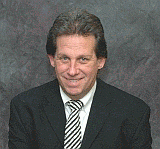Uncommon Practice: Our Private Practice Growth Story
We want to let you know why we started this business and what it stands for. You can learn more about our personal stories at Our Personal Stories, but this page is about why Uncommon Practices exists and how we can help you reach your private practice goals.
If you’re like us – and most clinicians – you learned little or nothing about business or marketing in graduate school. In contrast to the confidence you probably feel about your clinical skills, you may feel inadequate or uncomfortable in knowing what to do or how to proceed in promoting, marketing and growing your practice. Or you may know what to do, but just really dislike doing it. We were just like you, when we embarked on a relentless study of business and marketing.
Uncommon Practices, helping mental health professionals with private practice marketing and growth, was founded by Joe Bavonese, PhD and Melhim Restum, PhD in 2005. Joe and Mel first met in 1976 as doctoral graduate students in psychology. Later in our careers, we worked as Directors of separate Outpatient Mental Health and Substance Abuse clinics in the same organization. What follows below is the story of how we both entered private practice, and how we learned – the long, hard, expensive way – what it takes to create a very successful private practice.

 In 1992 I started my private practice in psychotherapy. I was told by five colleagues not to start a practice, because private practice was a dinosaur and no one could make money in private practice anymore. I decided to do it anyway, with an office in a run-down office building, three clients, a beat-up old couch, and a box of tissues. I had another full-time job, so I started part-time to see if I could make it on my own.
In 1992 I started my private practice in psychotherapy. I was told by five colleagues not to start a practice, because private practice was a dinosaur and no one could make money in private practice anymore. I decided to do it anyway, with an office in a run-down office building, three clients, a beat-up old couch, and a box of tissues. I had another full-time job, so I started part-time to see if I could make it on my own.